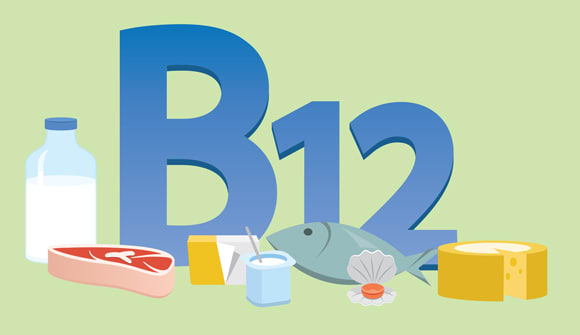Know if you’re low
The importance of vitamin B12.
Article Author: Wesley Roberts
Article Date:

Your red blood cells are like little Ubers, transporting oxygen to your tissues and organs.
Vitamin B12 is needed to make red blood cells. If you have low B12, your body is making fewer red blood cells, which means less oxygen delivered throughout your body. The vitamin is also critical for DNA creation, and low levels can interfere with the process and lead to anemia.
How do you know if you’re low?
“Many patients are familiar with low B12 causing fatigue,” explained Kara Teruya, MD, an internist with Baptist Primary Care. “However, it can also lead to anemia, cognitive slowing, mood changes, tongue swelling and pain (glossitis), and even neuropathy, which typically starts with numbness or tingling in the feet.”
The diagnosis for low B12 is made via a blood test to check the level.
Delve into B12
Vitamin B12 is mainly found in animal products, so low B12 can be especially prevalent for people eating vegan and vegetarian diets. Deficiencies are also more common in older adults and those who are pregnant or nursing.
“The vitamin is absorbed in the last portion of the small intestine, called the ileum,” explained Dr. Teruya. “B12 absorption also requires a protein called intrinsic factor, which is produced in the stomach. Therefore, conditions or surgical procedures that affect the stomach or ileum can lead to B12 deficiencies.”
Examples of conditions and procedures include Crohn’s disease, celiac disease, gastric bypass and stomach or small intestine resections.
Aside from diet and medical history, other factors can lead to low B12:
Medications can cause decreased absorption. “The most common culprits are those used for acid reflux and diabetes (metformin),” said Dr. Teruya.
Excessive alcohol use can lead to deficiency.
Pernicious anemia occurs when an individual has autoantibodies against gastric intrinsic factor, which is essential for absorption.
B12 boost
Getting a boost of B12 comes primarily through two main routes: oral supplements or intramuscular injections.
“If your B12 is low, your doctor will help determine the best route, dose and frequency for you,” said Dr. Teruya. “For example, if I have a patient who has Crohn's disease, a very low B12 level and a significant anemia, I will recommend injections over oral supplement as their intestine is unlikely to absorb the oral supplement due the condition.”
If you are experiencing symptoms of low B12, or are interested in learning more, make an appointment with Baptist Primary Care by filling out the appointment request form or calling 904.202.4YOU.



